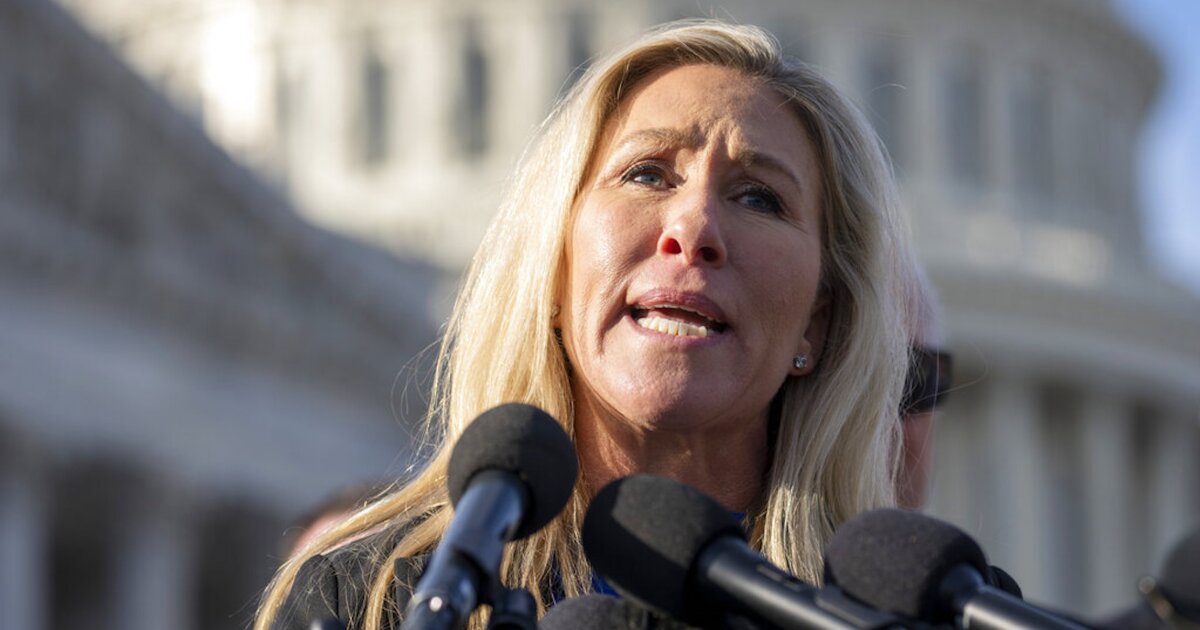

Just hours after a government spending deal was brokered between members of the House Freedom Caucus and the Republican Main Street Caucus, several hard-line conservatives have come out in opposition to the proposal, ultimately putting its passage in peril less than two weeks before an expected government shutdown.
Congress has until Sept. 30 to pass some form of spending legislation, but intraparty tensions and disagreements in the House have complicated those efforts over the last two weeks. In light of this, six members from the Main Street Caucus and the Freedom Caucus worked since Tuesday to negotiate a continuing resolution that conservatives could get behind. The deal was announced Sunday night and included the House’s border security bill passed earlier this year, as well as spending cuts.
WHAT HAPPENS DURING A GOVERNMENT SHUTDOWN, AND WHO IS AFFECTED?
The continuing resolution already had a slim chance of being signed into law as it would have been hard to pass the Democratic-controlled Senate and be signed by President Joe Biden, but now it’s receiving a rough reception in the House.
And, with Republicans having a slim majority in the lower chamber, House Speaker Kevin McCarthy (R-CA) can only afford to lose four GOP votes if all Democrats oppose the legislation — which so far doesn’t look promising for Republican leadership.
Currently, at least eight House Republicans have come out in opposition to the bill, putting the chamber’s leadership in a bind as they hope for a Wednesday vote on the bill, per a Republican member familiar with the matter.
Freshman Rep. Eli Crane (R-AZ), a member of the Freedom Caucus, told the Washington Examiner that he is a no on the bill.
Rep. Marjorie Taylor Greene (R-GA) said in a post on X, the social media site formerly known as Twitter, that she is also against the bill.
“CR negotiated by Byron Donalds and Dusty Johnson. No policy riders in the CR. So it’s all the policies from last year’s Democrat appropriations, with an 8% cut. Plus the border bill, but no E-Verify. I’m a NO. No money for Ukraine, COVID, or weaponized Gov. America First!” she said in the post.
CR negotiated by Byron Donalds and Dusty Johnson.
No policy riders in the CR. So it’s all the policies from last year’s Democrat appropriations, with an 8% cut. Plus the border bill, but no E-Verify.
I’m a NO.
No money for Ukraine, COVID, or weaponized Gov.
America First!🇺🇸
— Rep. Marjorie Taylor Greene🇺🇸 (@RepMTG) September 18, 2023
There is no funding for Ukraine in the bill.
Rep. Andy Ogles (R-TN) told the Washington Examiner he is a “lean no” on the bill but wanted to wait until he gets more information before making a final decision.
A member of the House Rules Committee, Rep. Ralph Norman (R-SC), expressed skepticism about the bill. The Rules Committee is set to vote on the bill on Monday, but Norman said he still has questions for House leadership.
“I will have to know two things; What is the top line number for all 12 appropriations bills; 2nd, what is LEADERSHIP willing to commit and ‘go to the [mat] on !!” Norman told the Washington Examiner in a text message.
He said he plans to talk to leadership before the Rules hearing on Monday.
Several other members also expressed to reporters or on social media that they are against the bill, including Reps. Dan Bishop (R-NC), Cory Mills (R-FL), Tony Gonzales (R-TX), Tim Burchett (R-TN), Matt Gaetz (R-FL), and Matt Rosendale (R-MT).
One Republican member familiar with the discussions said it was always known there would be problems with these members, and they are working to resolve it.
So far, the House has passed just one of its 12 appropriations bills after GOP leaders canceled votes on the defense bill due to a lack of support among hard-line conservatives. The Senate has passed none of its appropriations bills.
The deal was the result of nearly a week of negotiations between Reps. Chip Roy (R-TX), Byron Donalds (R-FL), and Scott Perry (R-PA) for the Freedom Caucus and Reps. Dusty Johnson (R-SD), Stephanie Bice (R-OK), and Kelly Armstrong (R-ND) for the Main Street Caucus.
The 31-day continuing resolution includes all of H.R. 2, the House’s border security bill, minus E-verify, other border security provisions, and spending cuts. The bill would keep defense and veteran affairs spending at fiscal 2023 levels and slash other domestic agency funding by 8%.
This would bring spending to $1.59 trillion — the spending level set in the bipartisan debt ceiling deal signed into law back in June.
Hard-line conservatives have called for spending to be set at $1.471 trillion. Many have also said they needed to see H.R. 2 or other strict border security measures in any continuing resolution in order for it to receive their support. But, even with the border security provisions in this measure, they are still against it.
“Getting to 218 isn’t ever easy, but we’re having productive conversations with members,” Johnson told the Washington Examiner. “Overwhelmingly, they want to secure the border. That’s what our bill does.”
Helping those in favor of the continuing resolution is having FreedomWorks, an influential conservative group, come out in support of the measure.
CLICK HERE TO READ MORE FROM THE WASHINGTON EXAMINER
In a statement, the group’s president, Adam Brandon, said the measure “represents a strong consensus” between conservatives and moderates and that his group supports the bill.
“We support the negotiated spending cuts and urge all members of the House to get behind the CR,” Brandon said in the statement. “However, we need to recognize that discretionary spending is less than a third of all federal outlays, and we need Republicans and Democrats to come together to solve the inevitable debt crisis that’s coming.”






